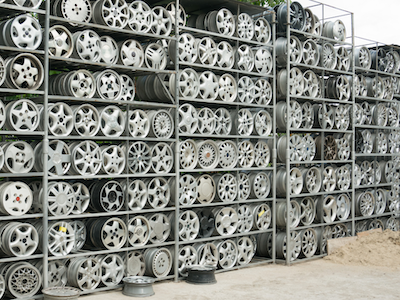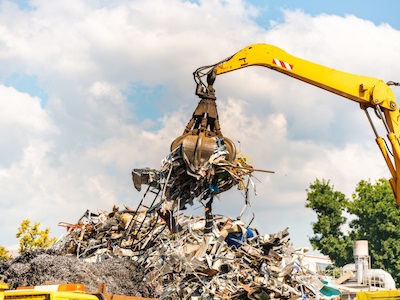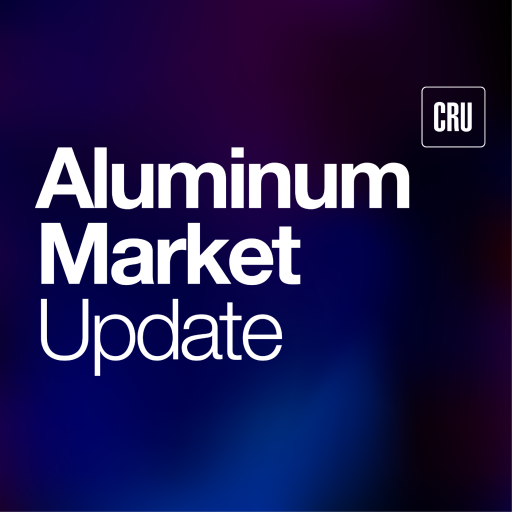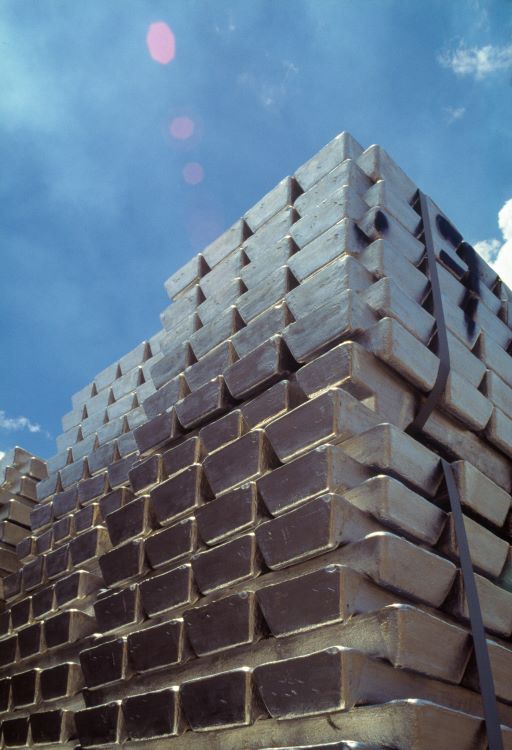Aluminum Scrap Markets

May 14, 2025
What Superior’s lost wheel contract says about regional sourcing
Written by Nicholas Bell
Detroit fallout, North American ripples
Superior Industries International’s disclosure of a major original equipment manufacturer (OEM) contract loss in its Q1’25 earnings report has implications beyond the 80%+ stock drop in the last week.
The aluminum wheel supplier – long a key player in North American OEM programs – reported a net loss of $12.9 million and cited the recent 25% US tariff on imported auto parts as a contributing factor to customer shifts.
While Michigan-based Superior did not name the “large North American OEM customer”, the scale suggests a major Detroit-based automaker.
Tariffs tip the balance
The development (counterintuitively) arrives as automakers are increasingly emphasizing North American sourcing to avoid auto part tariff exposure and meet USMCA’s region content thresholds, especially as around 75% of wheels are made from aluminum castings.
Prime Wheel Corp is one of the few large US-based Tier 1 OEM suppliers. Beyond that, most aluminum wheel production in North America is controlled by foreign-headquartered firms, many of which maintain a handful of tariff-insulated local assets. While these facilities may offer some regional coverage, the extent to which they could absorb or fulfil high-volume contracts from the likes of the Big Three remains uncertain.
Casting call
Here’s a look at major aluminum wheel manufacturers with in-region facilities may support USMCA sourcing strategies:
• CITIC Dicastal (China): Operates a Michigan plant with a 3 million wheel per year capacity
• Iochpe-Maxion (Brazil): Owns a long-established facility in northern Mexico
• RONAL Group (Switzerland): Has two facilities in Central Mexico, including San Luis, home to General Motors largest plant by capacity
• Enkei (Japan): Owns an Indiana plant, which is the state with the highest concentration of secondary aluminum alloy producers
• Central Motor Wheel (Japan): Operates a plant based in Kentucky, close to two of Ford’s largest assembly facilities.
• Other players: Borbet (Germany), HANDS Corp (South Korea) Korea, global players with no manufacturing footprint in North America
Where the metal meets the road
Most wheels are produced from secondary aluminum alloy A356.1, as opposed to chrome-plated wheels or 6061 truck wheels, which makes clean wheel scrap a valuable commodity for secondary smelters.
These wheels are typically collected through tire shops, dismantlers, and scrap yards. Their known chemistry and relatively low contamination make them desirable feedstock for foundry-grade alloys like A356.1 or ADC12.
That said, wheel scrap demand is two-pronged: While much of it melted down by secondary aluminum alloy producers, others are refurbished or remanufactured and sold in the aftermarket.
Regional rims and rotating demand
From a material standpoint, the broader realignment may shift regional demand for A356.1 secondary alloy – or at least shift which regions’ secondary producers are supplying it, depending on where the wheelmaker stepping in is sourcing its metal.
Scrap inflows, however, remain driven by structural factors like vehicle retirement rates, aftermarket replacement cycles, and domestic collection infrastructure. These factors don’t adjust as quickly to changes in OEM sourcing… unless you’re in Indiana where competition for clean A356.1 wheel scrap remains especially intense.








